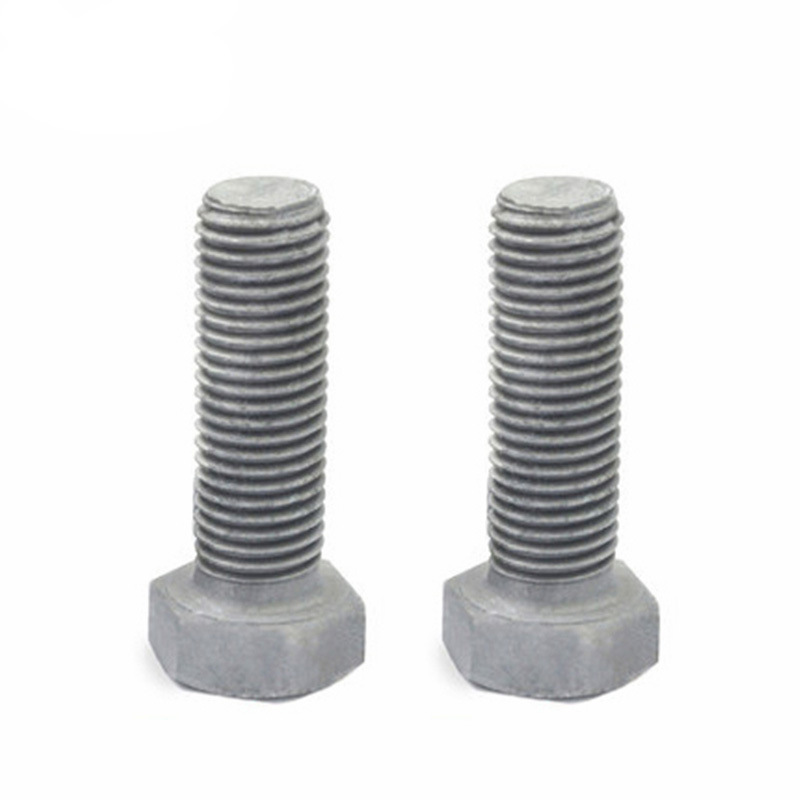

Exploring the Benefits and Applications of Stud Bolts in Construction and Engineering
Nov . 10, 2024 03:05 Back to list
Exploring the Benefits and Applications of Stud Bolts in Construction and Engineering
The Versatility and Importance of Stud Bolts in Modern Engineering
In the realm of engineering and construction, the humble stud bolt is a vital component that often goes unnoticed. However, its significance cannot be overstated. Stud bolts, characterized by their cylindrical shape, threads running along their length, and absence of a head, serve as essential fasteners in a wide array of applications, making them indispensable in the infrastructure of modern society.
What is a Stud Bolt?
A stud bolt is essentially a rod with threaded ends, allowing for a variety of fastening options. They come in diverse sizes and materials, including carbon steel, stainless steel, and alloy steel, to accommodate different environmental conditions and load requirements. Stud bolts are often used with nuts on both ends or with one nut and a tapped hole on the other, ensuring secure fastening in numerous applications ranging from automotive manufacturing to structural engineering.
Applications of Stud Bolts
One of the primary environments where stud bolts are employed is in the oil and gas industry. Stud bolts are used in assembling flanges, connecting pipes, and securing various components in both upstream and downstream operations. Given the extreme conditions in which these machined components operate—such as high pressure, temperature fluctuations, and corrosive environments—the reliability and strength of stud bolts are paramount.
In the construction industry, stud bolts are integral to large-scale projects. They provide stability in structures like bridges, skyscrapers, and industrial buildings. When incorporated into scaffolding systems, stud bolts help ensure a safe working environment by securing components against the forces of wind and gravity. The ease of installation (using a torque wrench for precise tensioning) and the ability to disassemble without damage make stud bolts a preferred choice for temporary structures as well.
The automotive sector relies heavily on stud bolts as well. They are used in engine assemblies, chassis, and suspension systems – areas where high strength and precision fasteners are critical. The automotive industry also benefits from threaded connections, where stud bolts provide an efficient means of assembly and maintenance, facilitating ease during repairs and part replacements.
stud bolt

Advantages of Using Stud Bolts
The design and functionality of stud bolts confer several advantages. Firstly, their ability to provide a high level of clamping force while distributing the load evenly helps prevent deformation of the parts being fastened. This is especially important in applications subject to vibrations or dynamic loads, where the structural integrity of connections must be maintained.
Additionally, stud bolts can be manufactured to specific lengths, allowing for customization based on project requirements. This adjustability means that engineers can specify exactly the level of engagement needed for a secure fit, which is critical in applications where precision matters.
Another significant benefit of stud bolts is their corrosion resistance. Various coatings and materials can be employed to enhance their durability and lifespan, which is particularly beneficial in environments exposed to moisture, chemicals, and extreme temperatures. The longevity of stud bolts means reduced maintenance costs and less frequent replacements, contributing to the efficiency of industrial operations.
Conclusion
In conclusion, stud bolts are more than simple mechanical fasteners; they are essential tools that enable the structural integrity and operational efficiency of various industries. Their versatility and strength have made them a staple in sectors as diverse as oil and gas, construction, and automotive manufacturing.
As technology advances and new materials and designs emerge, the role of stud bolts is poised to grow even further. Engineers and designers continually seek innovative ways to utilize these fasteners, improving safety and performance in their respective fields. The next time you encounter a bridge, an oil rig, or even your own vehicle, take a moment to appreciate the stud bolts that are quietly working behind the scenes, ensuring everything remains securely together. Stud bolts may be small in stature, but their impact on engineering and construction is monumental.
Latest news
-
Hot Dip Galvanized Bolts-Hebei Longze|Corrosion Resistance&High Strength
NewsJul.30,2025
-
High-Strength Hot-Dip Galvanized Bolts-Hebei Longze|Corrosion Resistance&High Strength
NewsJul.30,2025
-
Hot Dip Galvanized Bolts-Hebei Longze|Corrosion Resistance&High Strength
NewsJul.30,2025
-
Hot Dip Galvanized Bolts - Hebei Longze | Corrosion Resistance, High Strength
NewsJul.30,2025
-
High-Strength Hot Dip Galvanized Bolts-Hebei Longze|Corrosion Resistance, Grade 8.8
NewsJul.30,2025
-
Hot Dip Galvanized Bolts-Hebei Longze|Corrosion Resistance,High Strength
NewsJul.29,2025

